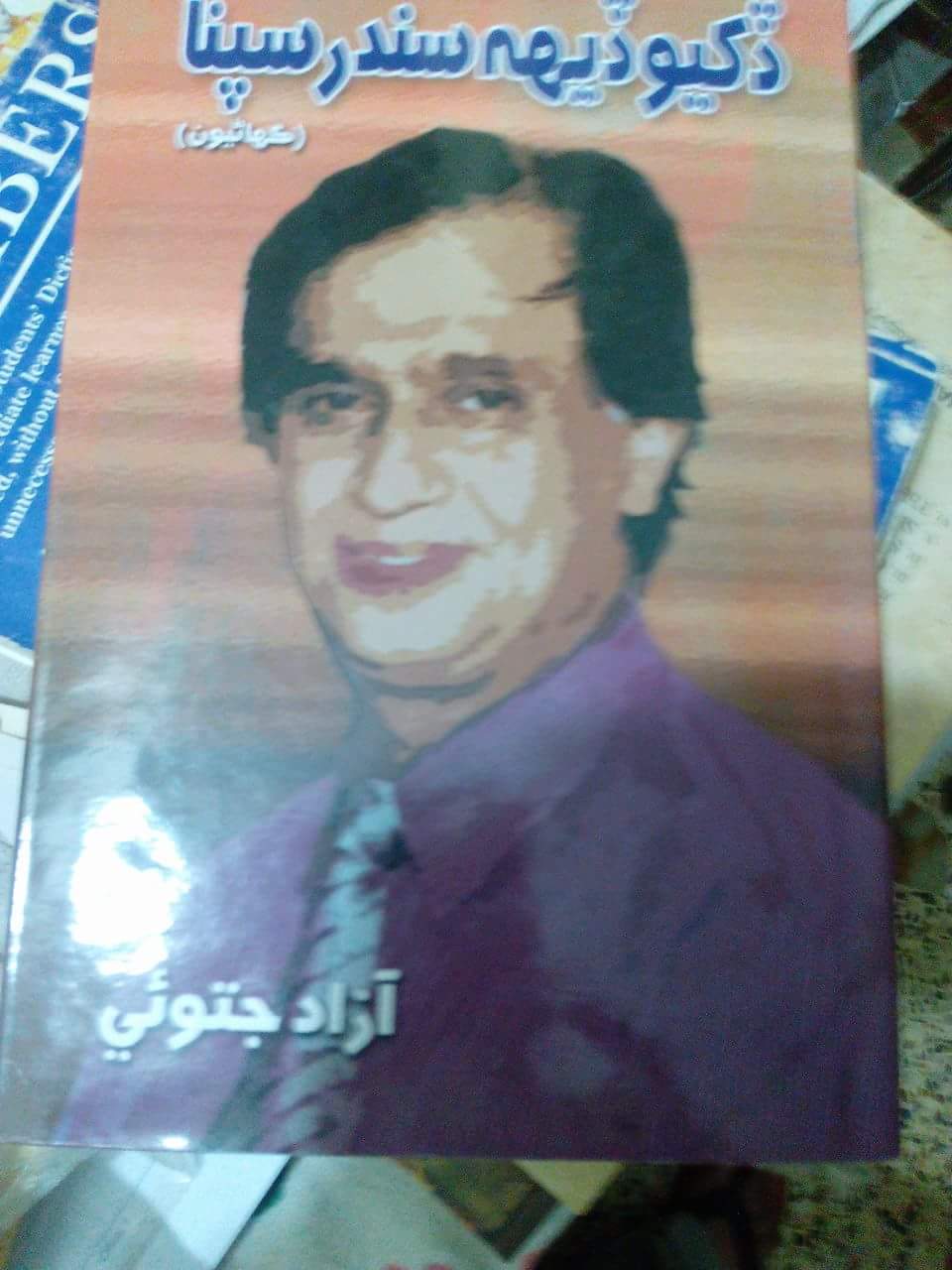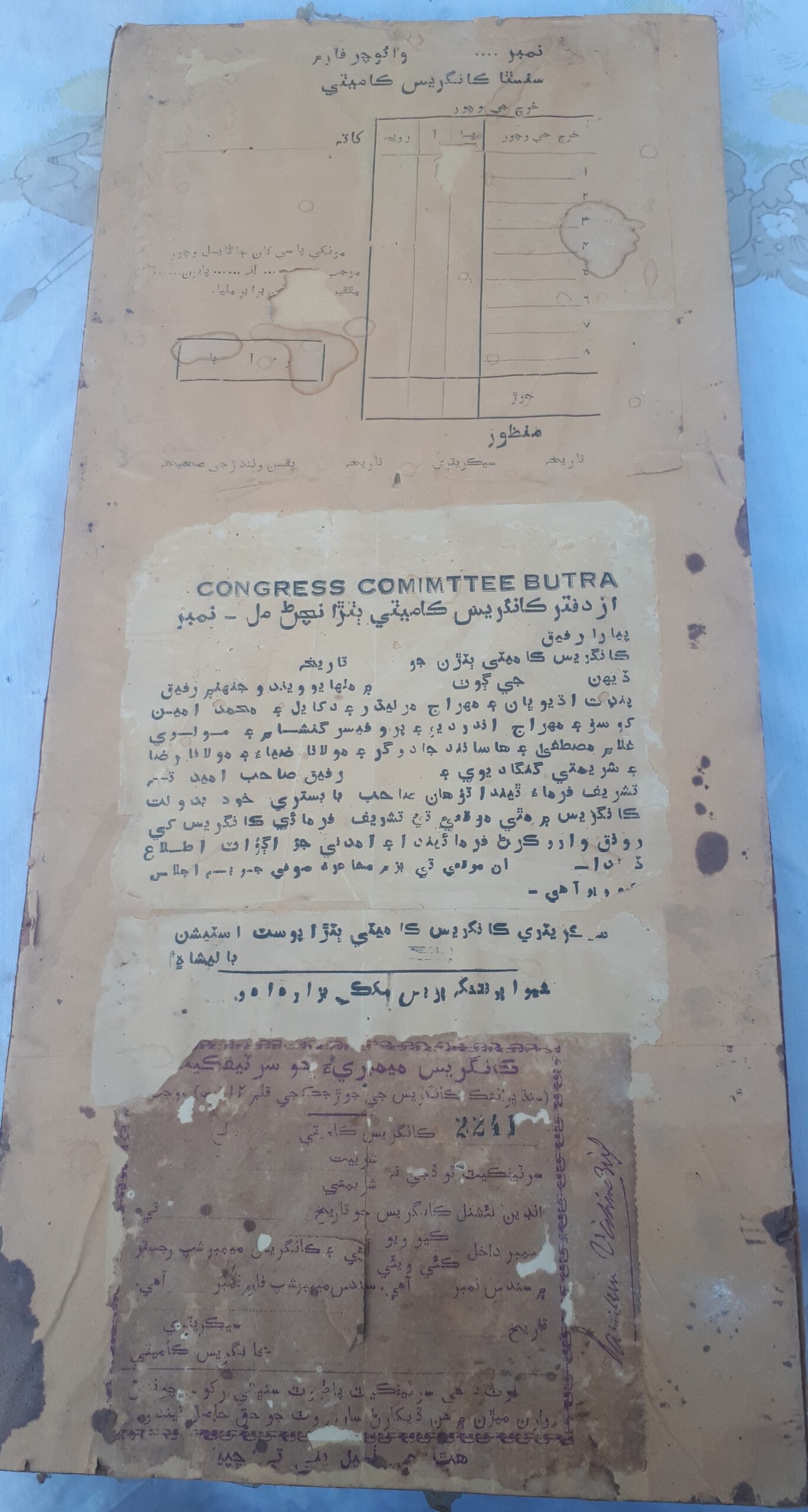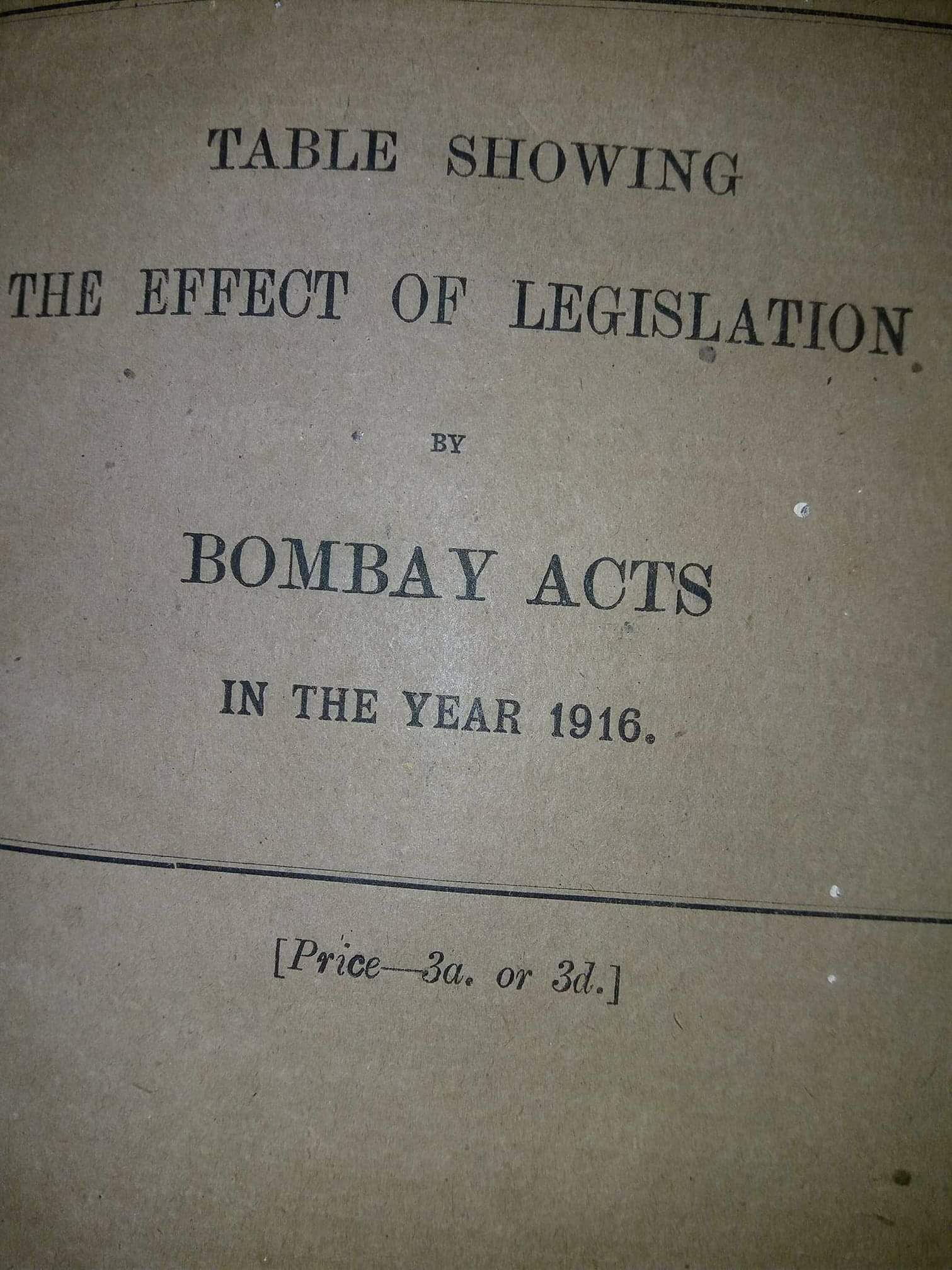(تون بن جاني! هي جهان)
”ادل سدا آرام ۾، ڀائر پيا ڀٽڪن“
ڊاڪٽر در محمد پٺاڻ
سج ۽ سچائي کاري ۾ لڪائي نه ٿا سگهجن، اهي جتي ڪٿي نظر ايندا. فرق اهو آهي ته ڪٿي اها حقيقت مڃرائڻ لاءِ وڏي مٿاڪٽ ڪرڻي پئي ٿي، ۽ ڪٿي انهيءَ حقيقت جي وڏي واڪ ڳالهه ڪرڻ تي کل لهراڻي پئي ٿي.
گهر کان وٺي شهر تائين، شهر کان وٺي سنڌ سموريءَ تائين ۽ سنڌ کان ويندي، هر ڪنهن صوبي تائين اها ئي سچائي آهي ۽ اها ئي سج جيان روشن حقيقت آهي ته وڏو ادو سدائين سک ۽ سڪون ۾ هوندو، پر ٻين ننڍن ڀائرن لاءِ مسئلن جي باهه ٻري پئي هوندي. پر جيئن چوندا آهن ته ”جي ٿو ڪڇان، ته پٽجن ٿيون مڇان. جي ٿو ڪريان ماٺ ته پوان ٿو ڪاٺ.“ انهيءَ مصداق دانهن ۽ آهن کي لڪائڻو پئي ٿو. اڳ چوندا هئا ته ”چور جي ماءُ ڪنڊ ۾ روئي“، پر هاڻي مظلوم، محڪوم ۽ بي وس ماڻهوءَ کي به ائين ئي ڪرڻو ۽ ڀرڻو پئي ٿو.
ان ڪري ڪنهن کي مجال آهي جو جزوي يا ڌرائتي حڪمرانيءَ تي احتجاج ڪندي چئي ته ملڪ جي ٽن صوبن ۾ باهه ٿي ٻري ۽ وڏو صوبو بدامني، دهشتگرديءَ ۽ ٻين قهري ڪلورن کان بچيل آهي. انهيءَ صورتحال لاءِ ڪنهن تي ميار نه ٿي رکي سگهجي، پر حڪمرانيءَجي اڍنگي ڏان تي ڪاوڙ ڪرڻ ۽ سوچڻ جو هر ڪنهن کي حق آهي.
چوندا آهن ته ڪو غريب فقير وڏيري ڏي ويو. فقير ڪنهن وٽ اچڻو نه وڃڻو، سو هن کي ڏسي وڏيرو گل جيان ٽڙي پيو ته نيٺ انهيءَ فقير به هن اڳيان حاضري ڀري. فقير کان پڇيائين ته ”ڪيئن قرب جا قدم ڀري آيا آهيو؟“ فقير وراڻيس ته ”الله جي مٽاسٽا ڪرڻ آيو آهيان. اسان جي الله ته نعوذ بالله اسان جي ڀينگ ڪري ڇڏي آهي ۽ تو وارو الله ته تنهنجا ڀريل مٽ به پيو ٿو ڀري.“ وڏيري کي ڪاوڙجڻ جو موقعو ملي ويو. فقير کي ڇنڊ پٽيندي چيائين ته ”ڪفر ٿو بڪين، الله هڪ آهي. اهو توکي به ٿو ڏئي ته مون کي ٿو ڏئي. ساري جهان کي ڏئي ٿو، جيڪو مڃيس ان کي به ڏئي ۽ جيڪو نه مڃينس، ان کي به ڏئي“. ان تي فقير وراڻيس ته ”سائين!“ اهو ئي ته سمجهائڻ سمجهڻ لاءِ آيو آهيان. جڏهن ڏيڻ وارو سڀني کي ڏئي ٿو ته وچ تي شوداگيري ڪير ٿو ڪري جو هر شئي اوهان ڏي اچي ٿي. ڏيڻ واري جو ڏوهه ڪونهي، وچ تي هيراڦيري ڪير ٿو ڪري. پڪ ئي پڪ اوهان ٿا ڪريو، يا اوهان جا ڀاڙيتا دوست.“
وڏيري ۽ فقير هڪٻئي جي ڄنڊاپٽ ڪئي يا نه ڪئي، ان سان اسان جو ڪم ڪونهي. اسان جو ڪم انهيءَ ڳالهه جي روحاني راز سان آهي ته ملڪ هڪ، نظريو هڪ ۽ نعرو هڪ. پر صوبن ۾، ماڻهن ۾، سوچن ۾، لوچن ۾ ۽ صورتحال ۾ زمين آسمان جو فرق موجود اهي. اها ڳالهه فقير وانگر اسان پارن ڪيترن ماڻهن جي سمجهه کان مٿي آهي.
اڳي عبدالرب نالي هڪ پوليس عملدار ٿي گذريو آهي. هن پوءِ آپ گهات ڪيو هو. هن لاءِ مشهور هئو ته هو اڪثر چوندو هو ته ”مٿي رب ۽ هيٺ عبدالرب.“ وڏو ڪڙڪيدار آفيسر هو. سو اهڙي طرح هاڻي تاريخ عجيب مثال قائم ڪئي آهي ته مرڪز ۽ هڪ صوبي ۾ هڪ ئي پيءُ جي ٻن پٽن جي حڪمراني آهي. هيٺين حڪومت ۾ هڪ ڀاءُ ۽ مٿئين حڪومت ۾ ٻيو ڀاءُ. ڏک جي ڪا ڳالهه ڪونهي. اسان جو جهڙو نظام آهي نتيجا به اهڙا نڪرندا. پر ڏک جي ڳالهه اها آهي ته سمورن صوبن ۾ ڀائر بڻجي عوام جي خدمت ڇو نه ٿي ڪئي وئي؟ ائين ڇو آهي ته ڪٿي اڌ ڪاٺ جو آهي ته اڌ لوهه جو آهي؟ ڪٿي ڪو بااختيار آهي ته ڪٿي جهڙوڪ بي اختيار! ڪٿي امن ۽ امان اختيار سان قائم ڪرايو ٿو وڃي ته ڪٿي وانگار تي!! حالانڪ حڪمران ۽ سياستدان مارشل لائن کان ايترو رت ٿي چڪا آهن جو ”افهام تفهيم“ جي حڪمت عملي طئي ڪري ورتي اٿن. پر ان جو اهو مطلب ته نه ٿيڻ گهرجي ته ”حڪومت ڪيو ۽ حڪومت ڪرڻ ڏيو.“ اهو افهام تفهيم ته پنهنجي اقتدار کي بچاءَ بند ڏيڻ برابر ٿيو. ان ۾ عوام جي شرڪت ۽ عوام جو مفاد ڪٿي آهي؟ حڪمران ۽ سياستدان جيڪڏهن فقط پنهنجي اقتدار کي بچائڻ لاءِ بچاءَ بند ٻڌندا ته پوءِ بي امني ۽ بي روزگاري جي ٻوڏ کان عوام کي ڪير بچائيندو؟
جيستائين ننڍن ۽ وڏن ڀائرن واري سوچ ۽ رويا قائم رهندا ۽ جيستائين اقتدار بچائڻ جو اونو رهندو، ان وقت تائين عوام جو ڪو به اوهي واهي ڪو نه لڀندو. ان ڪري روشن مستقبل ۽ بهتر حالتن پيدا ڪرڻ جي تقاضا آهي ته سياستدانن کي ڪو نئون سياسي معاهدو به ڪرڻ گهرجي، جنهن ۾ غربت، افلاس ۽ بدامنيءَ جي خاتمي وارين ڳالهين سان گڏ خانداني ۽ مورثي حڪمرانيءَ ۽ سياست جي خاتمي کي انهيءَ معاهدي جي شرطن ۾ شامل ڪيو وڃي. نه ته ادل سدا آرام ۾ هوندا ۽ ڀائر پيا ڀٽڪندا رهندا. وڏ ڀائپي گهرن ۽ شهرن ۾ ته هلي سگهي ٿي پر ملڪ ۾ هلائڻ سان ملڪ سان ويساهه گهاتي ڪرڻ برابر ٿيندي.


